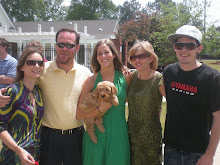Knowledge Building and Discourse
Based on the work of Scardamalia and Bereiter (2006), “Sustained knowledge advancement is seen as essential for social progress of all kinds and for the solution of societal problems. From this standpoint the fundamental task of education is to enculturate youth into this knowledge-creating civilization and to help them find a place in it” (p. 97). Knowledge Building allows for discourse, negotiation and sharing of ideas: “Idea improvement is an explicit principle, something that guides the efforts of students and teachers rather than something that remains implicit in inquiry and learning activities” (Scardamalia, 2002, p. 77). Knowledge Building also provides opportunities for the construction and development of knowledge artifacts. Artifacts are shaped throughout the learning process and include artifacts produced by use of cognitive tools such as plans, graphs, concept maps, and models (Quintana et al, 2006). Knowledge building is centered in pedagogical practice (authentic activity, project-based learning, situated cognition, etc). Knowledge Building requires keeping a persistent record of discourse and providing common spaces for group members to share (Scardamalia & Bereiter, 2006). For example, communities of practice and/or communities of learners require common space for members and establish that group size should be small. Scaffolding and supports should be designed for a variety of perspectives (small groups' preferences as well as individual learning preferences). Activities should reinforce the transforming personal perspective to group perspective:
In effective collaborative knowledge building, the group must engage in thinking together about a problem or task and produce a knowledge artifact such as a verbal problem clarification, a textual solution proposal, or a more developed theoretical inscription that integrates their different perspectives on the topic and represents a shared group result that they have negotiated (Stahl, 2006, p. 3).
Such activities support interactions and enable the co-creation of knowledge and the development of knowledge artifacts.
Monday, October 27, 2008
Subscribe to:
Post Comments (Atom)

No comments:
Post a Comment